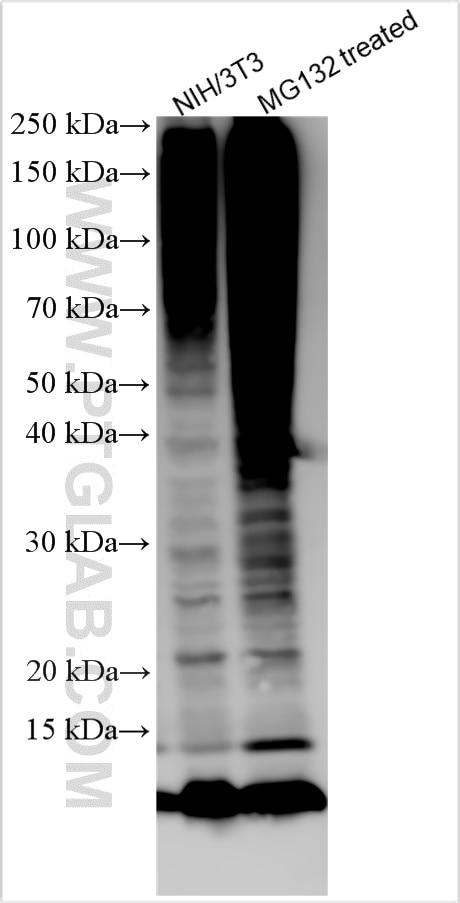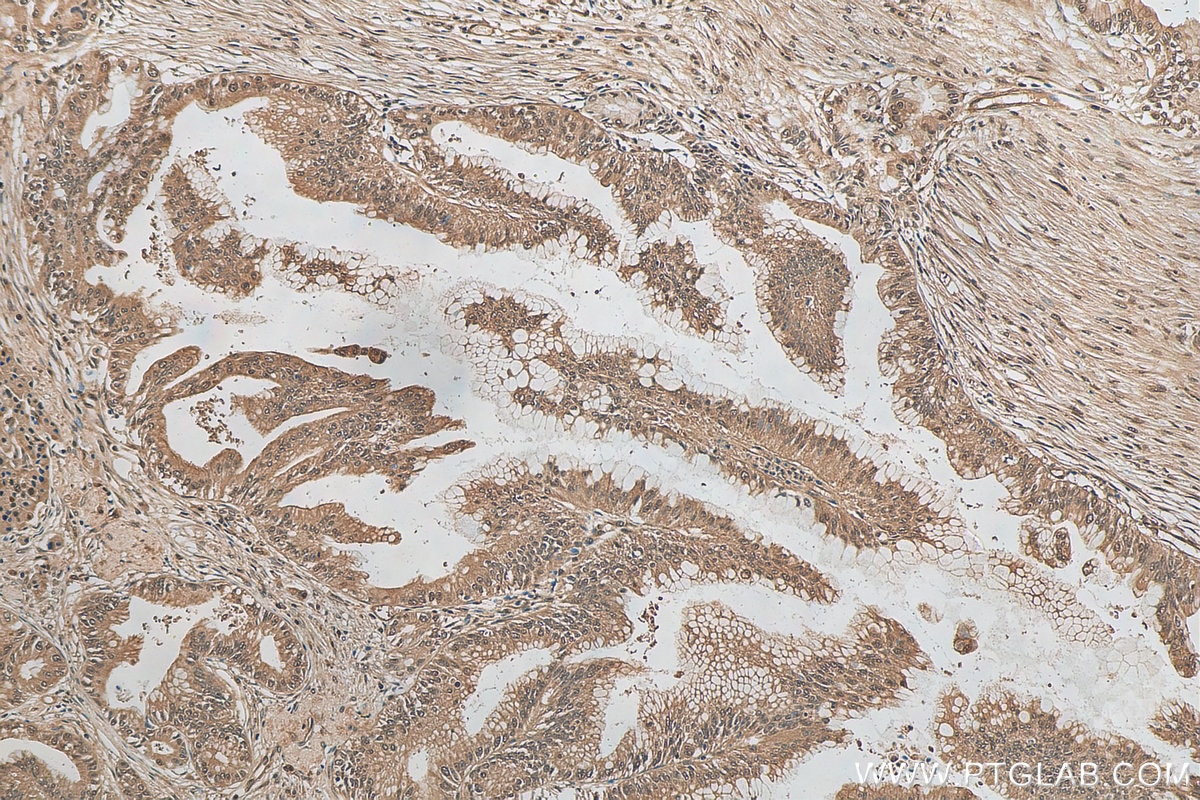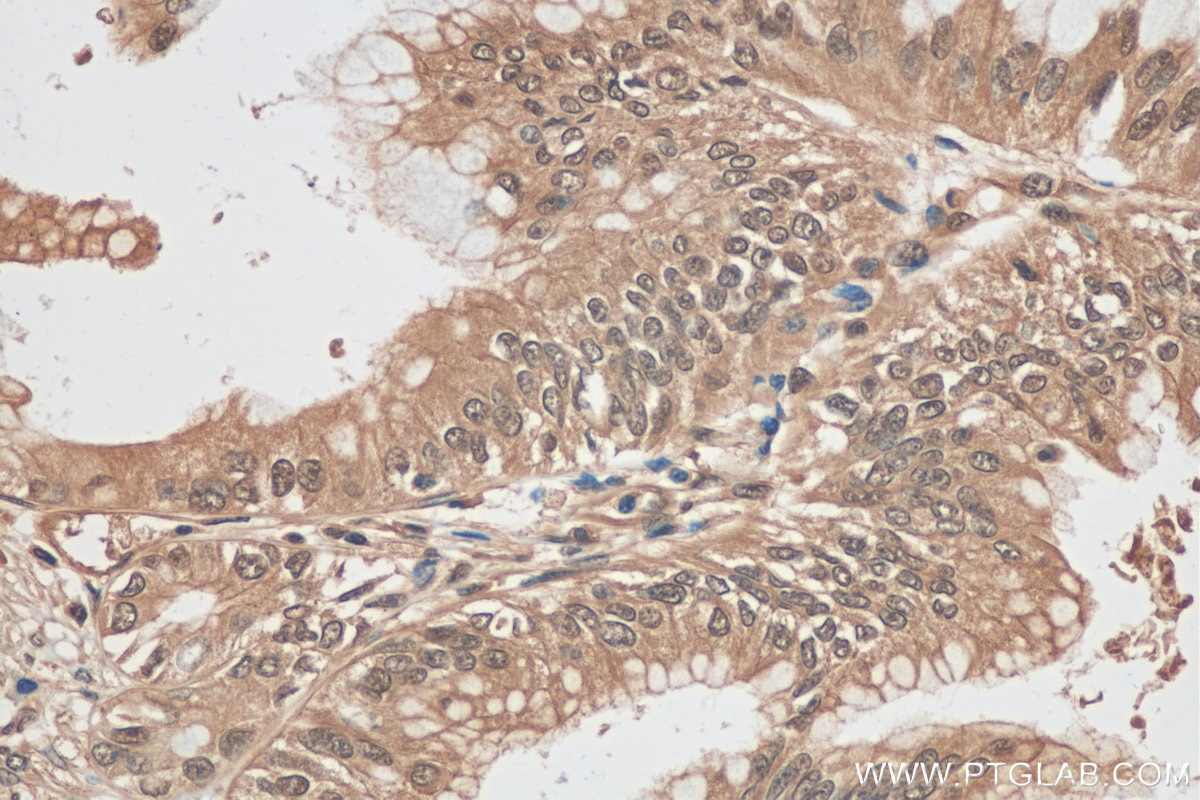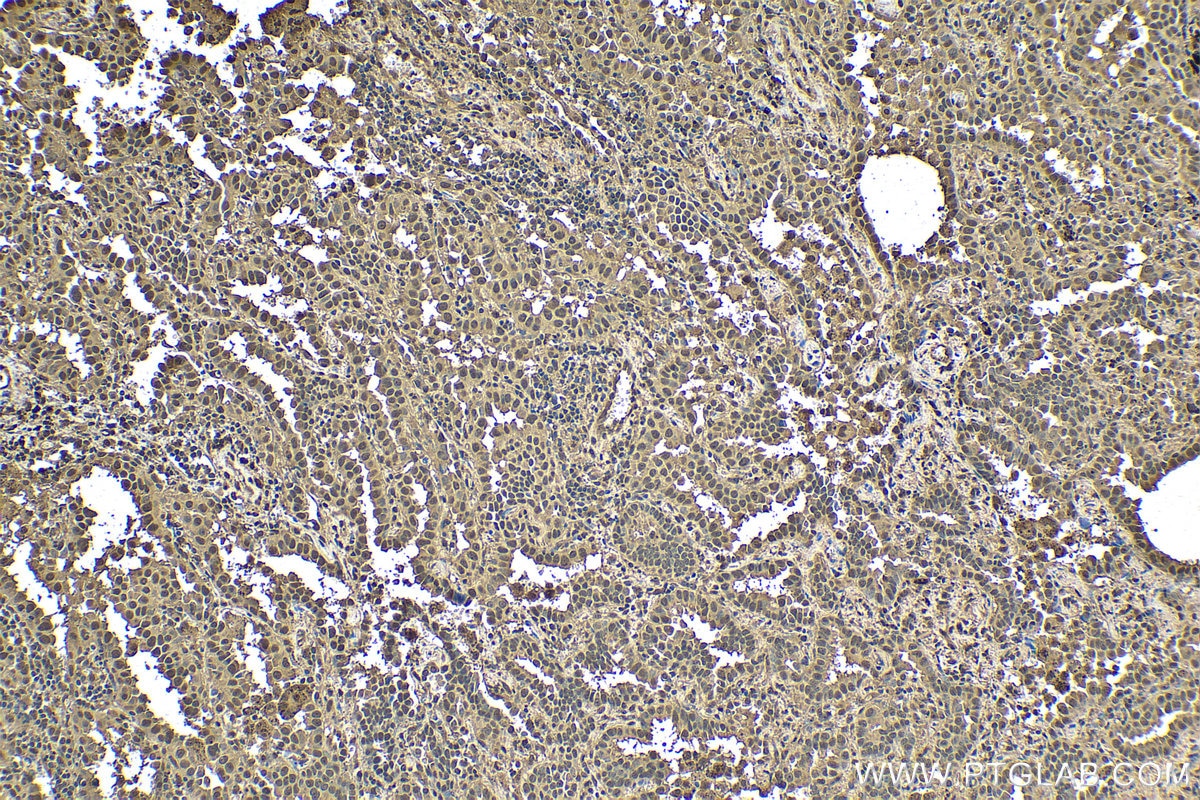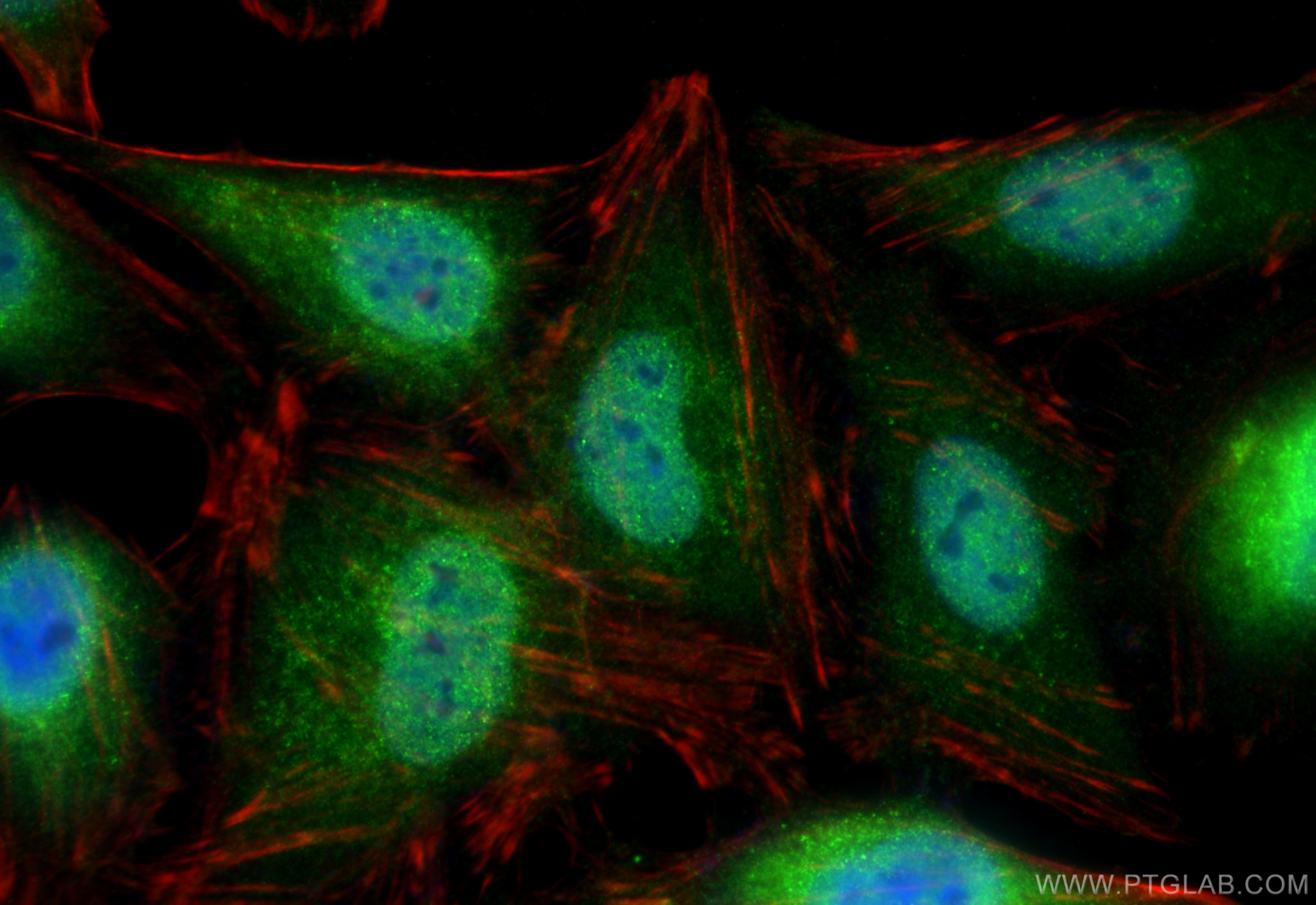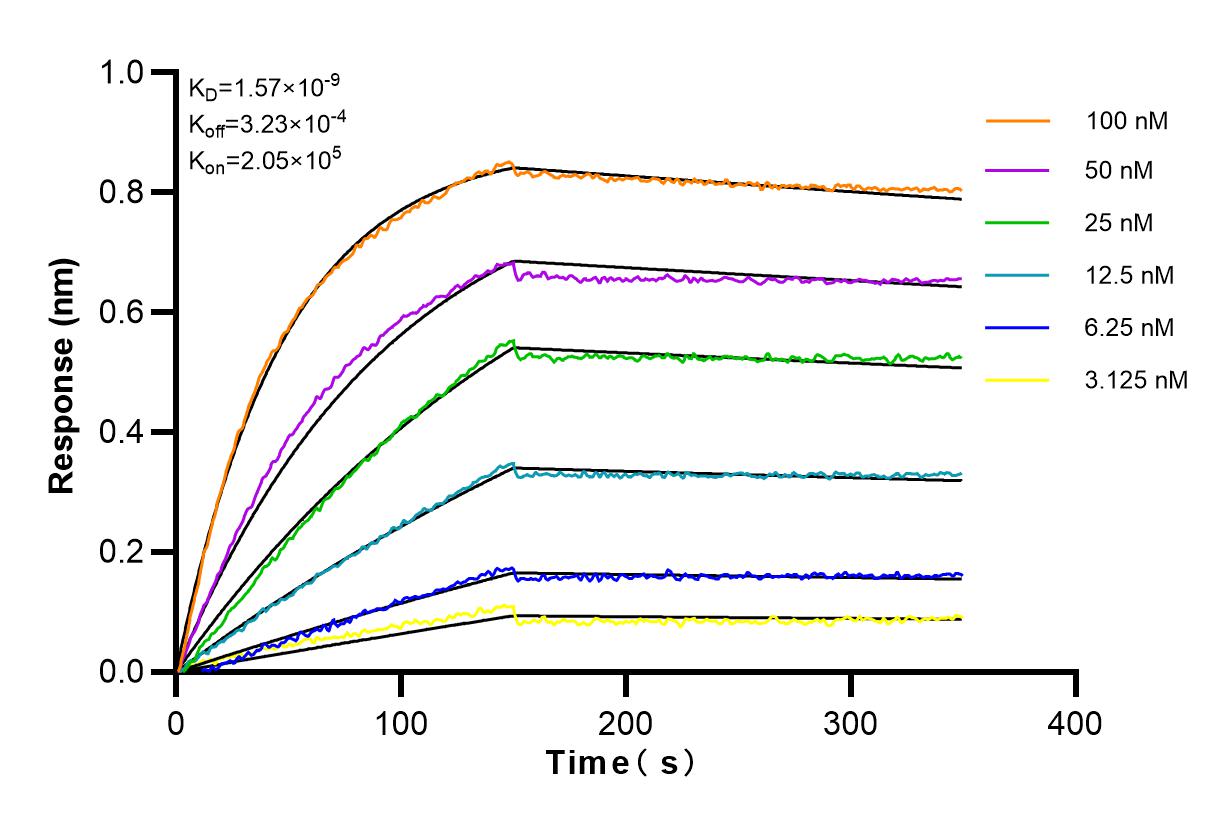Anticorps Recombinant de lapin anti-ubiquitin
ubiquitin Recombinant Antibody for WB, IHC, IF/ICC, Indirect ELISA
Hôte / Isotype
Lapin / IgG
Réactivité testée
chien, Humain, levure, rat, souris, Hamster
Applications
WB, IHC, IF/ICC, Indirect ELISA
Conjugaison
Non conjugué
CloneNo.
6H6
N° de cat : 80992-1-PBS
Synonymes
Galerie de données de validation
Informations sur le produit
80992-1-PBS cible ubiquitin dans les applications de WB, IHC, IF/ICC, Indirect ELISA et montre une réactivité avec des échantillons chien, Humain, levure, rat, souris, Hamster
| Réactivité | chien, Humain, levure, rat, souris, Hamster |
| Hôte / Isotype | Lapin / IgG |
| Clonalité | Recombinant |
| Type | Anticorps |
| Immunogène | ubiquitin Protéine recombinante Ag0260 |
| Nom complet | ubiquitin B |
| Numéro d’acquisition GenBank | BC000379 |
| Symbole du gène | ubiquitin |
| Identification du gène (NCBI) | 7314 |
| Conjugaison | Non conjugué |
| Forme | Liquide |
| Méthode de purification | Purification par protéine A |
| Tampon de stockage | PBS only |
| Conditions de stockage | Store at -80°C. 20ul contiennent 0,1% de BSA. |
Informations générales
Ubiquitin B (UBB) is a member of ubiquitin family, one of the most conserved proteins known. Ubiquitin B is required for ATP-dependent, non-lysosomal intracellular protein degradation of abnormal proteins and normal proteins with a rapid turnover. Ubiquitin B is covalently bound to proteins to be degraded, and presumably labels these proteins for degradation. Ubiquitin also binds to histone H2A in actively transcribed regions but does not cause histone H2A degradation, suggesting that ubiquitin is also involved in regulation of gene expression.When polyubiquitin is free (unanchored-polyubiquitin), it also has distinct roles, such as in activation of protein kinases, and in signaling. This gene consists of three direct repeats of the ubiquitin coding sequence with no spacer sequence. Consequently, the protein is expressed as a polyubiquitin precursor with a final amino acid after the last repeat. Aberrant form of this protein has been noticed in patients with Alzheimer's and Down syndrome. Interestingly ubiquitin also becomes covalently bonded to many types of pathological inclusions which appear to be resistant to normal degradation.
